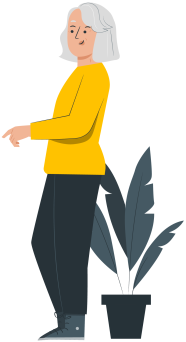
Understanding
Urine Leaks
&
Bladder Control
Problems


If you’re wondering why you’re leaking urine and are worried about it, download our helpful bladder diary.
The bladder diary will help you understand any symptoms and point to clues on your leakage triggers so you can decide if it’s time to get a little help.

Are you finding it hard to hold back your urine or are you having sudden urges to pass urine? Maybe you’re leaking urine while sneezing, coughing, or exercising.
Or perhaps after urinating your bladder is still feeling full and you find yourself unexpectedly leaking urine during the day and at night. You might not be able to fully empty your bladder while on the toilet.
Get Your FreeBladder Diary
Complete your details to download your free bladder diary and start logging your toilet habits as a helpful way to track your leakage.

Is leaking urine normal?
The risk of incontinence gets higher as you age but shouldn’t be considered as a normal part of life or something you should put up with.
It can be distressing for anyone trying to manage urine problems themselves, especially without knowing what’s causing it. Sometimes the media can make it seem that it’s normal and okay to leak urine, but this isn’t helpful.
We understand that urine problems may really impact your daily life. It can be a hard thing to manage on your own and get really frustrating, but you’re not alone.
How can a bladder diary help me?
When should I get help?
If you’re leaking urine and it’s getting in the way of your everyday life, you should visit your local GP for advice.
Only a doctor or nurse can diagnose incontinence; your doctor or nurse, along with the bladder diary, can help you find ways to improve or solve your problem.
Things that you could currently be doing to try and stay dry include:
A bladder diary helps you to keep a record of how much you drink, what you’re drinking and how often you pass urine. You also note any accidental leaks and what you were doing at the time.
Keeping a bladder diary may seem a little unusual at first, but it can be really handy to:

Help you spot trends and pinpoint leakage triggers. Keep a record of your leakages (if you can, a week can be really helpful)
Make it easier for you to have conversations with your doctor or nurse at your appointment
Help you log your urine leakages for your doctor to be able to spot trends

- Using pads or adult nappies
- Always needing to know where the toilet is when you're out
- Cutting down on the amount of liquid you drink


What are the types of urinary incontinence?
Stress Incontinence
Urge Incontinence
Overflow Incontinence
If you have stress incontinence, you’ll experience leakage of urine during regular activities that put stress on your bladder such as laughing, coughing and exercise.
With urge incontinence, you’ll feel a strong and sudden urge to use the bathroom. This feeling might be very intense and you may not be able to make it in time.
Overflow incontinence can be caused by chronic urinary retention and happens when you’re not able to empty your bladder completely. Because of this, your bladder will become too full and start leaking unexpectedly.
Leaking urine doesn't necessarily mean you have urinary incontinence, other factors that may cause urine leakage include: Urinary Tract Infections (UTIs), constipation, some medications.
If this sounds like you, it might be time to get some help.
If you have overflow incontinence that’s left untreated, it can cause complications.
It’s important for you to visit your doctor and discuss your symptoms to be
diagnosed and treated.
If you’re experiencing symptoms of acute urinary retention, where you’re in pain and
can’t pass any urine, please seek help immediately by visiting your local GP or A&E.

When it comes to incontinence, we’re experts. For years we’ve been helping people get the right solutions for their continence problems, so you can get back in control and live your life the way you want to.
We're here to help
CliniMed Ltd, a company registered in England number 01646927. Registered office: Cavell House, Knaves Beech Way, Loudwater, High Wycombe, Bucks HP10 9QY. Tel: 01628 850 100 Fax: 01628 527 312 Email: enquiries@clinimed.co.uk or visit www.clinimed.co.uk. CliniMed® is a registered trademark of CliniMed (Holdings) Ltd. ©CliniMed Ltd. 2023.

